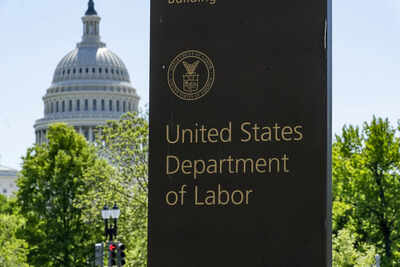General

The Trump administration has announced a sweeping plan to deregulate over 60 US labour laws, signalling a significant shift in how the country governs worker rights and workplace protections.
The proposed rollback, aimed at eliminating what the Department of Labor calls “outdated and burdensome” rules, covers a wide range of provisions, minimum wage thresholds, safety regulations, overtime protections, and union-related rules.While the administration frames the move as pro-growth and business-friendly, global observers warn that it could further erode the United States’ standing as a top destination for international students and skilled workers.
General What’s changing?
The proposed changes target core federal protections that govern the American workplace. Among them:
- Weakening of minimum wage and overtime rules for specific job categories
- Relaxation of workplace safety standards across high-risk industries
- Reduction in oversight of employer violations and worker grievances
- Rollback of certain union and collective bargaining rights
The Labor Department claims the deregulation will streamline compliance and stimulate job creation. However, critics argue it opens the door to increased exploitation, especially in sectors employing temporary, immigrant, or entry-level workers.
General Global gap widens
Even before the proposed deregulation, the United States already lagged behind most developed nations in labour protections.
In contrast, the European Union enforces bloc-wide standards on critical issues like working hours, paid leave, occupational safety, and employee participation in workplace decisions.Countries such as Germany, Canada, Australia, and the Nordic nations go further, offering:
- Stronger social safety nets
- Faster grievance redressal mechanisms
- National minimum wage guarantees
- Universal healthcare access, often tied to employment
By comparison, the US approach is more fragmented and employer-driven. The country has ratified fewer than 15 International Labour Organization (ILO) conventions, well below the average for advanced economies—particularly in areas like freedom of association, collective bargaining, and worker safety.The proposed rollback of over 60 labour protections would only widen this divide, raising concerns about how the US is positioned in the global education and employment ecosystem. For international students weighing their options, a less protected labour market could make the US less attractive for post-study careers and long-term settlement.
General Implications for international students
For international students, especially those pursuing degrees with plans to work in the US through programs like OPT (Optional Practical Training) or H-1B visas, the changes could significantly alter expectations. A deregulated labour market could lead to:
- Weaker job security after graduation
- Reduced workplace safety and protection, especially in STEM and industrial fields
- Increased difficulty in reporting violations or securing fair treatment
While US universities remain globally respected, the long-term value of an American education is increasingly tied to post-study work opportunities.
With diminished labour protections, the pathway from student to skilled professional may become more precarious.
General Shifting student preferences
Amid changing US policy, many international students are looking toward alternative destinations that offer both educational quality and worker-friendly environments. Canada, Germany, the Netherlands, and Australia have gained traction for combining post-study work rights with clearer pathways to permanent residency and better labour conditions.Recent years have seen a measurable uptick in international student interest in countries with more stable immigration systems and higher labour protections. The proposed US deregulation may accelerate this shift.
General Strategic risk for the US
Labour deregulation may lower costs and increase flexibility for employers, but it also raises reputational concerns for the United States. Countries perceived to have lax worker protections risk trade friction, ethical sourcing bans, and a decline in global talent inflows.
In a globalised education market where students factor in long-term outcomes, such shifts can influence university application trends, talent retention, and economic competitiveness.The Trump administration’s labour deregulation drive marks a turning point in U.S. workplace policy. While it may appeal to business interests, it also introduces uncertainty for those planning to build a future in the country. For international students weighing their options, the message is increasingly clear: academic excellence alone is no longer enough—labour protections matter too.As other nations expand both student-friendly and worker-protective policies, the United States risks losing ground in the global race for education, talent, and innovation.TOI Education is on WhatsApp now. Follow us here.

